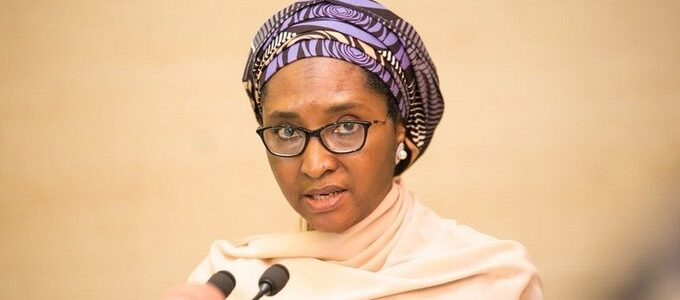
There is uneasy calm among local manufacturers and stakeholders in the Nigerian automobile industry over the bid by the federal government to slash import duties on tractors, trucks and other transport vehicles.
The Federal Executive Council (FEC) had in its weekly meeting last week approved the 2020 Finance Bill containing some economic measures targeted at impacting on the economy in many ways. Minister of Finance, Budget and National Planning, Hajiya Zainab Ahmed, while giving assurance that the bill will not lead to an increase in tax, had said the intent was to ease the tax burden on some categories of businesses, especially the small and medium businesses. But the proposed slash of import duties on tractors, trucks and other transport vehicles is already generating rumpus some controversy.

Although the government has explained that the new policy is aimed at cushioning the harsh socio-economic conditions confronting Nigerians, experts have contended that the policy was ill-timed and could portend some danger for the nation’s automobile industry.
The new policy, they argued, is capable of forcing genuine foreign investors to have a rethink about investing in Nigeria. According to them, some stiff economic measures contained in the 2020 Finance Bill are counterproductive and will adversely affect local manufacturers in these categories of vehicle.

They said the new policy Ahmed would massively discourage local manufacturing of vehicles which is the fulcrum of the National Automotive Policy. In a bid to address the deficit in the economy, the federal government had initiated the National Automotive Industry Development Plan (NAIDP) with the aim of attracting Foreign Direct Investment (FDI), curtailing the dependence on importation of vehicles, and promoting local production of automobiles. But stakeholders said they are indisposed to the new policy occasioned by the Bill, saying it runs contrary to the effort to encourage local manufacturing of automobiles.
They suggested that the government considers revamping the moribund steel industry and infrastructure to support vehicle-manufacturing plants. They noted that the planned tariff undermines the local content policy, which insists on allowing Nigerian ingenuity room to assert itself. They also warned that if the nation goes ahead to make the importation of these classes of vehicles any comer’s game it would have an adverse effect on the economy.
The local manufacturers have, therefore, called on the National Assembly to do the needful by halting the Bill, adding that the government must take action now to encourage local production. This, they pointed out, must be done before the takeoff of AfCTA in January 2021, otherwise the country may lose the automobile market to other African countries, especially Ghana.
Speaking on the development, executive director, Nigerian Automotive Manufacturers Association (NAMA), Mr Remi Olaofe, stated that his association had already scheduled a meeting to iron out the issue. Mr Olaofe said, “I won’t be able to comment on it till after NAMA’s emergency meeting on the subject on Tuesday”. In the same vein, the chairman, Motor Vehicles & Miscellaneous Assembly Sectoral Group of the Manufacturers Association of Nigeria (MAN), Dr David Obi, expressed pessimism with the policy, querying its initiators. Dr Obi, who is also a board member representing MAN at the National Automotive Design and Development Council (NADDC), said the knotty issue would be vehemently challenged. “We are going to discuss it at our next meeting on November 26, 2020. We made automotive policy in such a way that the duties should be about 70 per cent in order to encourage local manufacturing of vehicles. By this proposal the purpose will be defeated which is not good. It is very, very bad and I don’t know who is advising them.
“It is people who want to buy luxury cars that are sponsoring this kind of policy. It is very wicked. They just want to create problems because many jobs will be lost. The automotive industry is well paid and well skilled. It is against the spirit of auto policy,” Obi said. Also commenting on the matter, the director-general of Lagos Chamber of Commerce and Industry (LCCI), Mr Musa Yusuf, said policymakers should be careful not to jeopardise existing manufacturing investments in auto assembly sector, saying that if tariff concessions are given for importation of fully built vehicles, then corresponding.
Credit: Leadership
